On July 18, 1863, Civil War Sgt. William Harvey Carney was severely wounded but saved the U.S. flag as a member of the Black fighting unit known as the 54th Massachusetts Infantry Regiment. He was the first African American to perform an action for which a Medal of Honor was awarded.
Carney was born to enslaved parents in Norfolk, Virginia, on February 29, 1840, and attended a secret school during a time when Virginia made it illegal to teach African Americans to read and write. Little else is known about Carney’s early years, and there are different versions about how he and his parents moved from Norfolk to New Bedford, Massachusetts, including some that involved the Underground Railroad.
In New Bedford, Carney intended to go into the ministry, but President Abraham Lincoln’s Emancipation Proclamation, effective January 1, 1863, opened the U.S. military to African Americans. Carney enlisted and was quickly promoted to sergeant. He later explained, “I could best serve my God serving my country and my oppressed brothers.”
On July 18, 1863, the 54th Regiment spearheaded a fierce ground attack against the well-entrenched forces of the Confederate traitors but were beaten back after enduring more than two hours of a devastating enemy barrage and hand-to-hand combat — a battle that helped inspire the 1989 movie, Glory.
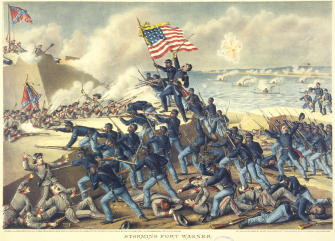
A lithograph printed in 1890 depicts the 54th Regiment storming Fort Wagner. Source: Library of Congress.
Carney fought near the front with Col. Robert Gould Shaw and saw the colonel killed along with the color guard, Sgt. John Wall, who had been carrying the U.S. flag. As Sgt. Wall stumbled, Carney caught the flag and resumed the charge. Although he was wounded, Carney briefly planted the flag atop a crest but had to fall back as his regiment retreated. Carney was shot several more times, yet he refused to drop the flag or give it up to soldiers of other U.S. regiments, even as he sometimes had to crawl. When he finally staggered to safety and was about to collapse, Carney exclaimed to cheering comrades the words that would become immortal: “Boys, I only did my duty; the old flag never touched the ground!” His actions and the quote inspired a popular song co-written by James Weldon Johnson, who also wrote “Lift Every Voice and Sing.”
Carney waited 37 years — until May 23, 1900 — to be awarded the Medal of Honor, a delay that was not unusual for Civil War veterans. The Civil War produced 25 of the nation’s 89 African American recipients of the Medal of Honor.
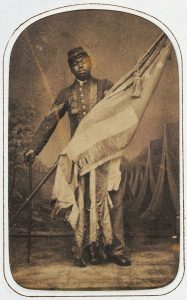
William H. Carney with cane and flag, circa 1864. Source: National Museum of African American History and Culture.
After the war, Carney became the first Black mail carrier in New Bedford, working for the postal service for 32 years. When he died on December 9, 1908, Massachusetts ordered all flags lowered to half-mast the first time the state had given such an honor to an African American.
Other honors for Carney include a life-size bronze statue of him in his hometown of Norfolk. It stands atop the African American Civil War memorial, a rare monument in the South for the nearly 200,000 Black soldiers and sailors who served with U.S. forces. The posthumous tribute, dedicated in 1920, rises amid the 58 gravestones of Black veterans of the Civil War and Spanish-American War in Norfolk’s West Point Cemetery.
By Michael Knepler, who prepares periodic #tdih posts for the Zinn Education Project.
Learn more
Learn more about William H. Carney at the U.S. Army website, at a website dedicated to the historic 54th regiment, and the African diaspora media organization Face 2 Face Africa.

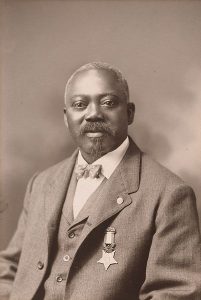
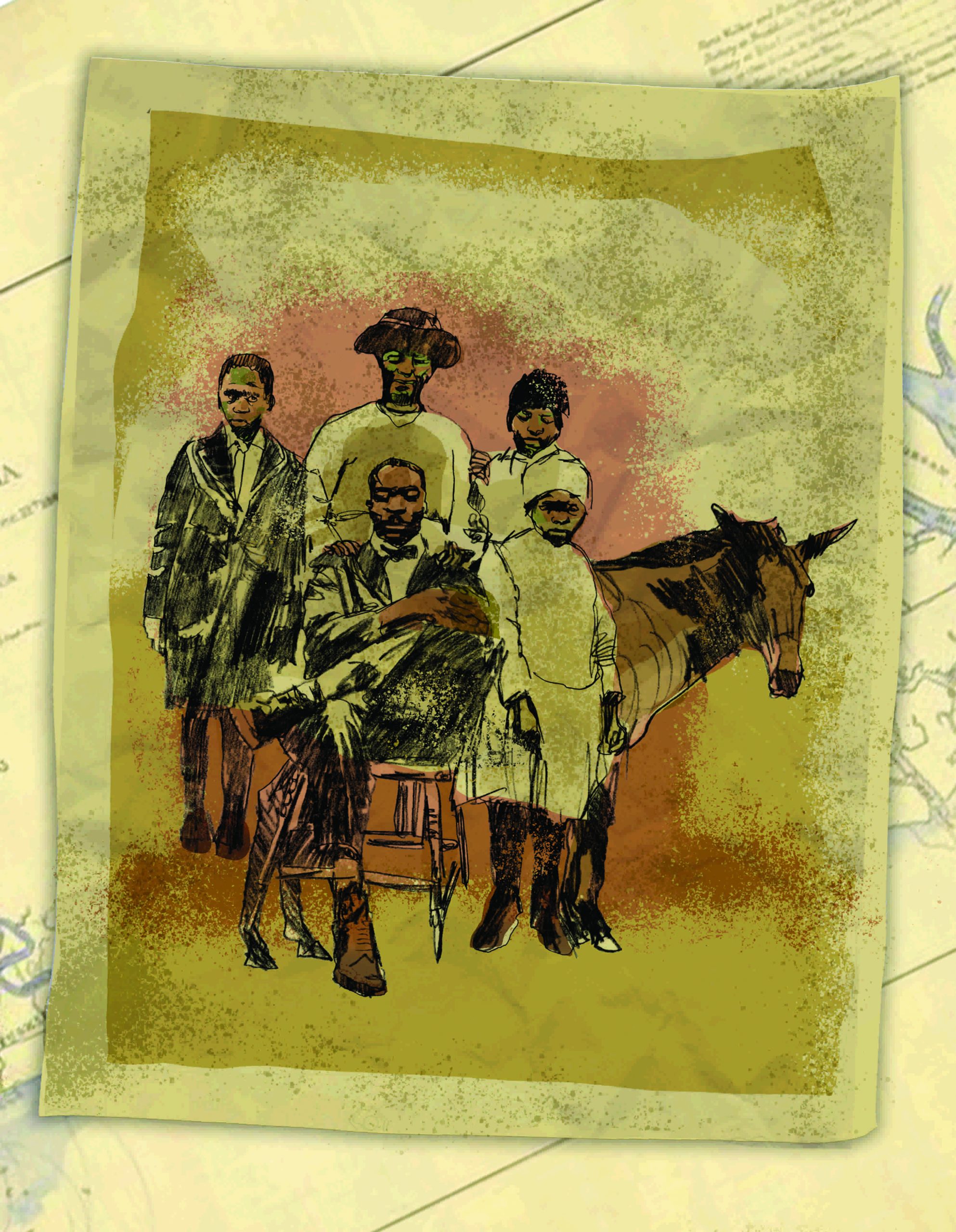

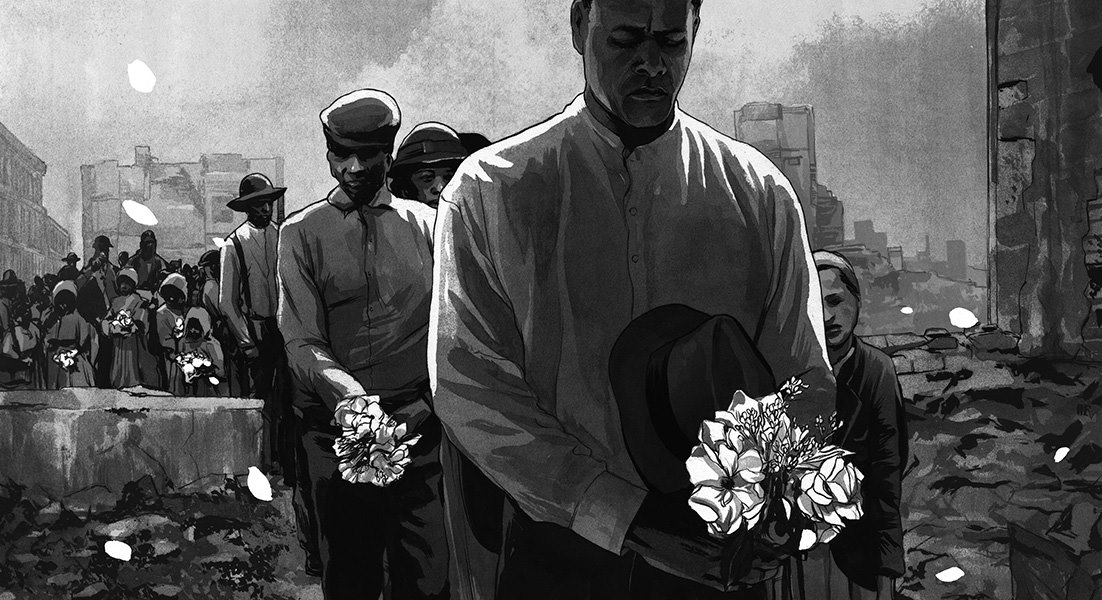

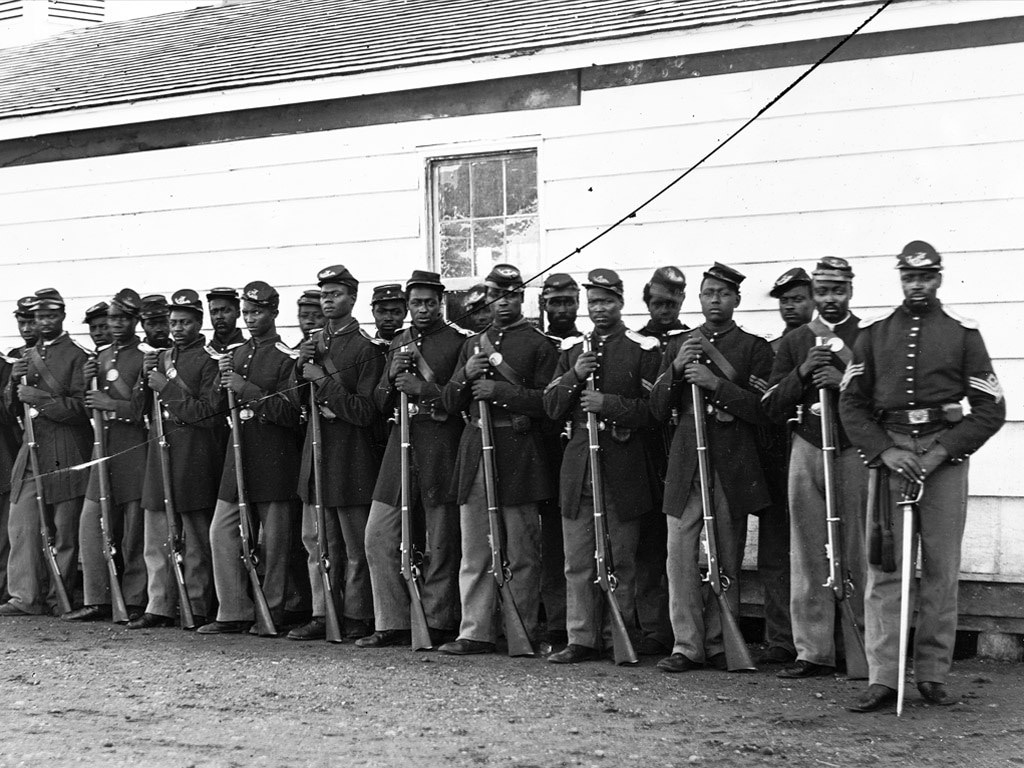
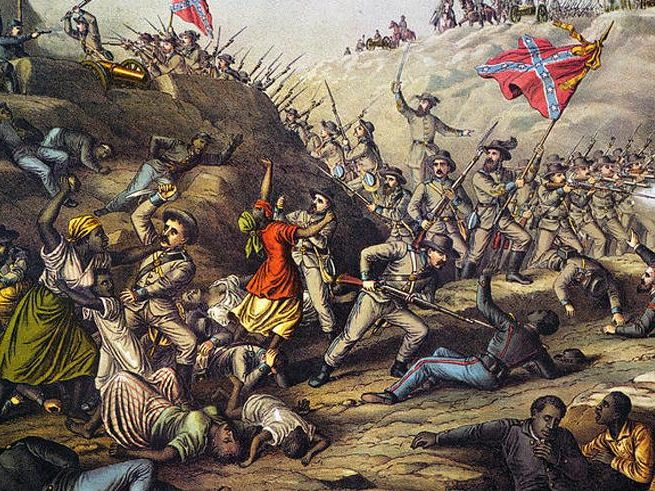
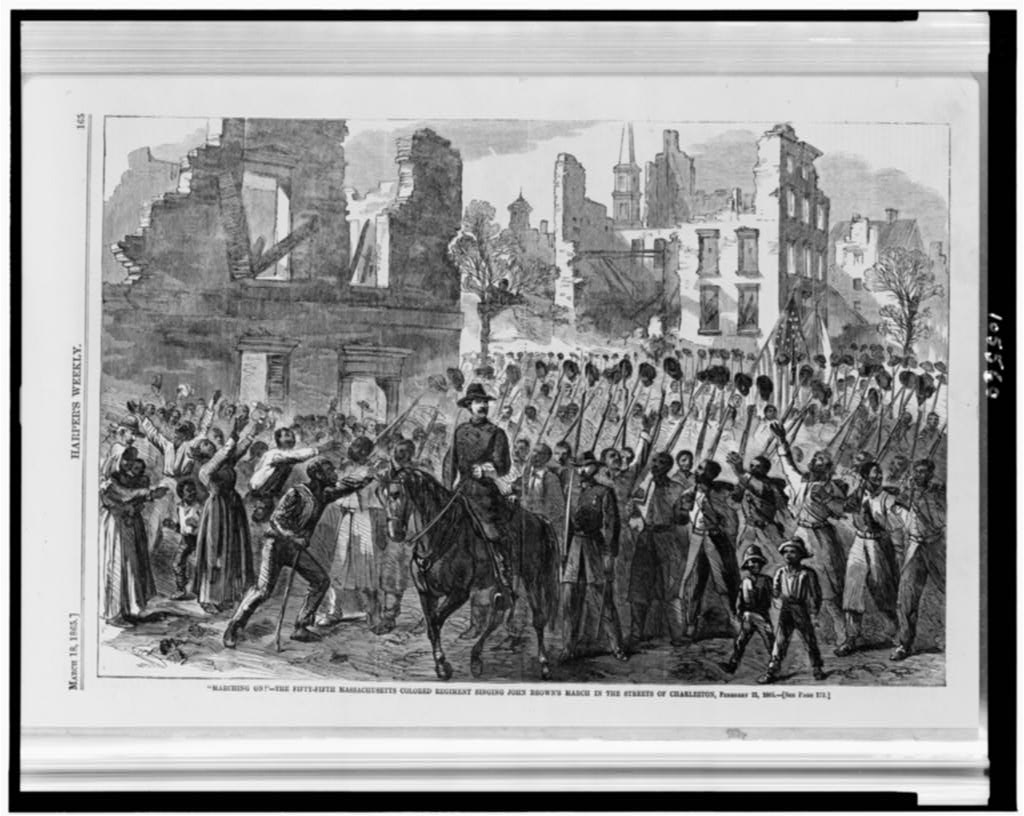





Twitter
Google plus
LinkedIn